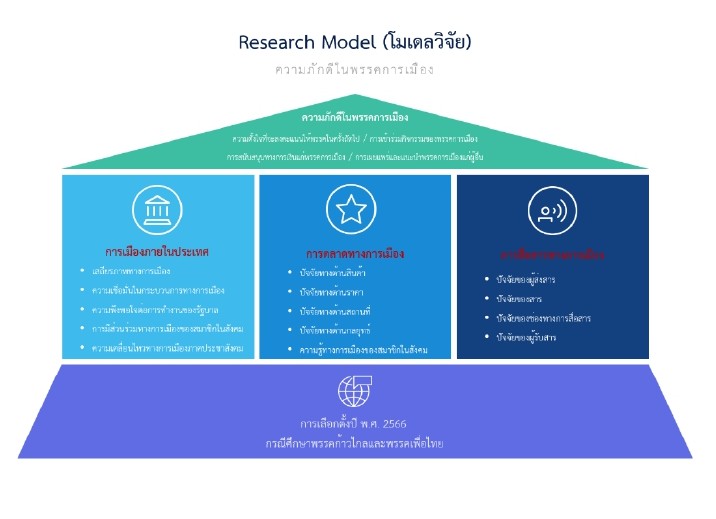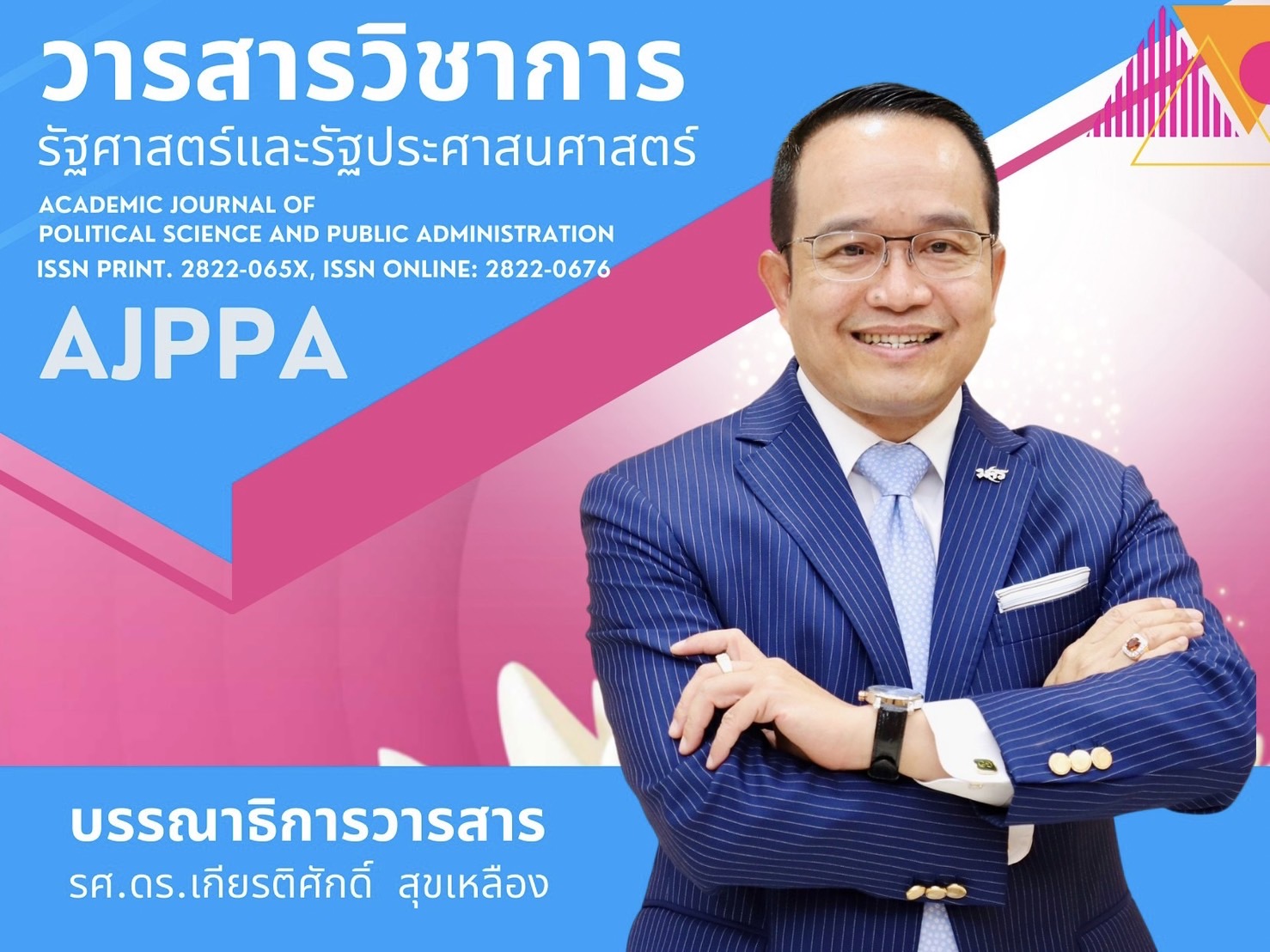FACTORS INFLUENCING POLITICAL PARTY LOYALTY THROUGH THE 2023 ELECTION: A CASE STUDY OF THE MOVE FORWARD PARTY AND THE PHEU THAI PARTY
Keywords:
Influential Factors, Political Party Loyalty, 2023 General ElectionAbstract
The purpose of this research paper is to analyze the factors that influence loyalty in political parties. A case study of the Progressive Party and the Party for Thailand through the 2023 election by linking the Constitution on Political Parties, Election Statistics, Political Marketing, Political Markets, Political Parties Political communication and a system of group loyalty to create the context of education. Using an integrated research methodology. Quantitative data is collected through questionnaires and analyzed with descriptive and inferential statistics, as well as in-depth interviews with political analysts. Party strategists and the public. The sample used in the research consisted of voters in Thailand who were interested in both political parties and had experience voting in the 2023 election using a random method to obtain representation from a diverse public and reflect the overall picture of political party loyalty. To analyze quantitative data, basic statistical methods such as frequency analysis, correlation analysis, and hypothesis testing are used. For structural equation analysis, to test the causal relationship between variables, while for qualitative data analysis, content analysis or theme analysis is used to distinguish the data obtained from interviews and interpret the data related to political party loyalty
The research findings indicate that all three factors influence political party loyalty. Domestic political factors directly impact public perceptions and decision-making, while effective political marketing and communication help enhance awareness and engagement. These factors promote political loyalty through voting in future elections, participation in activities, financial support, and information dissemination about the political parties, which contribute to long-term attachment and strengthen the overall political process. The structural equation modeling reflects the complex relationships between the factors that influence trust and loyalty in the political system.
References
พรชัย วัฒนานันท์. (2563). การใช้สื่อสังคมออนไลน์ในการเผยแพร่ข้อมูลทางการเมืองและผลกระทบต่อความภักดีทางการเมือง. กรุงเทพฯ: สำนักพิมพ์พี.เอ็น.เอ.
วัชรพล บุญรอด. (2559). การสื่อสารทางการเมืองและการสร้างความภักดี. กรุงเทพฯ: สถาบันการสื่อสารการเมือง.
ศราวุธ สุขสวัสดิ์. (2558). การใช้สื่อในยุคดิจิทัลและผลกระทบต่อการตัดสินใจทางการเมือง. สถาบันวิจัยทางการเมือง.
สมชาย สุขสวัสดิ์. (2563). การสนับสนุนทางการเงินจากประชาชนและผลกระทบต่อความภักดีในพรรคการเมือง. สถาบันการศึกษาทางการเมือง.
สุพรรณี อัมระนันท์. (2560). ผลกระทบของความโปร่งใสในการดำเนินงานของรัฐบาลต่อความภักดีในพรรคการเมือง. สำนักพิมพ์วิจัยและพัฒนา.
อภิชาติ พลวิชัย. (2017). ผลกระทบของการใช้โซเชียลมีเดียในกลยุทธ์การตลาดทางการเมือง. กรุงเทพฯ: สถาบันสื่อสารมวลชน.

Downloads
Published
How to Cite
Issue
Section
Categories
License
Copyright (c) 2025 Academic Journal of Political Science and Public Administration

This work is licensed under a Creative Commons Attribution-NonCommercial-NoDerivatives 4.0 International License.




